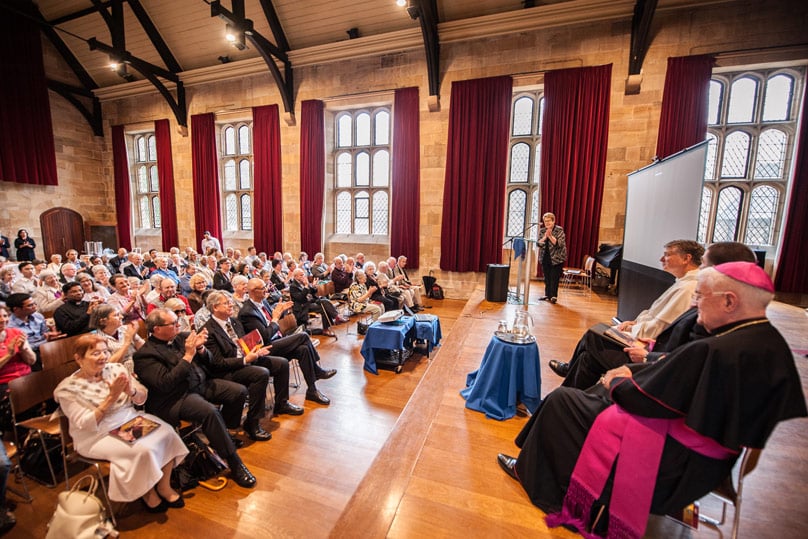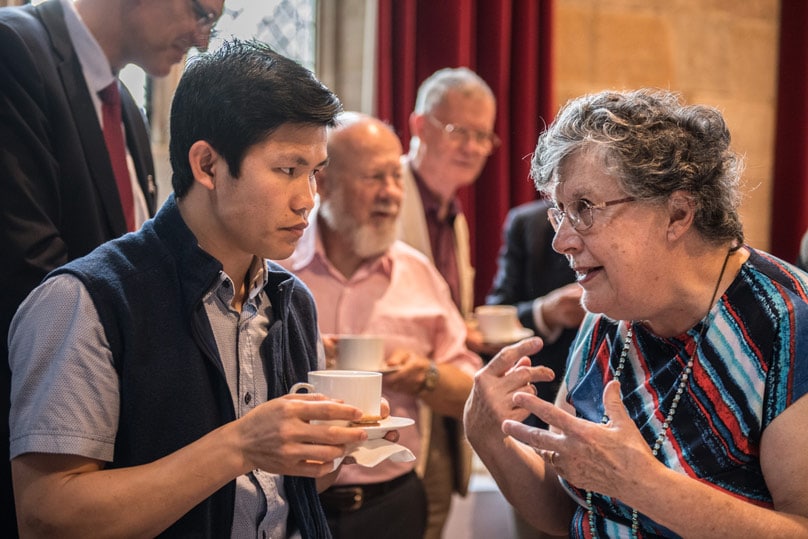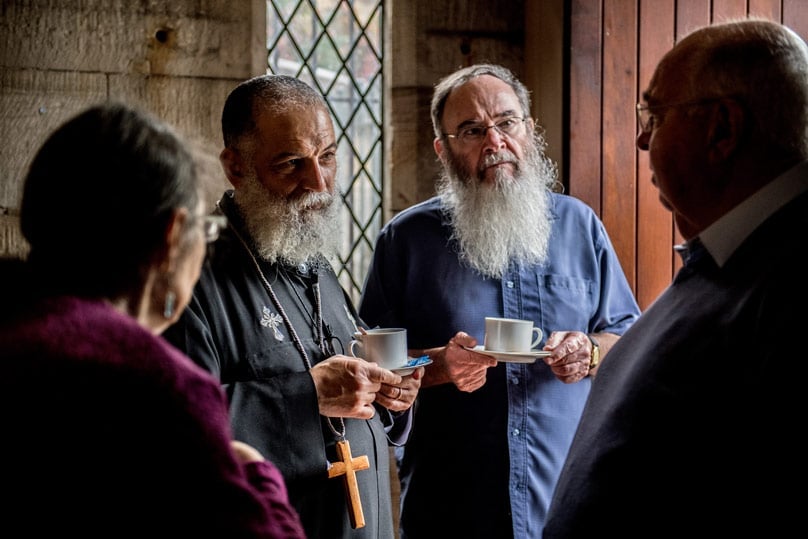
The decades following the Reformation in Europe were some of the bloodiest in human history, but what are we to make of the ‘event’ itself?
Australian liturgist and former Anglican, Bishop Peter Elliott, was a keynote speaker at the 500th Anniversary of the Reformation and Commemoration on October 11 at St Mary’s Cathedral, Sydney.
Bishop Elliott has written extensively about the life and times of Martin Luther, the Augustinian monk of the 16th century who railed against – and then broke with – the corruption-riddled Church of his time.
Bishop Elliott also played a significant role in the establishment of Personal Ordinariates for former Anglicans in the latter years of the pontificate of Pope Benedict XVI.
The Catholic Weekly spoke to him after his keynote address.
What is the significance of today’s event?
I think it’s significant that we have Catholics and Lutherans commemorating one of the most controversial figures in the history of Christianity. As the Lutheran Bishop (Bishop Mark Lieschke) pointed out, we’re not celebrating the Reformation, because there is a tragic dimension to it, the divisions in Western Christianity that came from what Luther began.
We are commemorating it with a sense of hope for the future and valuing the good things that came out of the Reformation, and these good things, particularly, are the quest for a deeper personal faith in Jesus Christ and his justifying grace. And that’s something that the Catholic Church in its own way recognised in the response to Luther at the Council of Trent.

And I would encourage Catholic people to study Church teaching on justification, which is found very clearly in the Catechism of the Catholic Church and based directly on the Council of Trent.
Now Luther provoked that; he made the Church face up to a clearer understanding of how God saves us in Christ, how we receive grace – the nature of grace and salvation.
The Second Vatican Council seemed to usher in a new era of ecumenism. Does that spirit need to be recovered?
I don’t think we’ve lost the ecumenical spirit that the Council officially endorsed. It had already begun. You can track it back to the 19th century, the realisation that divisions in Christianity are a disgrace. They’re not to be maintained. We have to work together to heal them.
It was Pope John, St John the XXIII, whose feast day is today, who was the great breakthrough pope on this. He was determined that one of the features of the Council would be a new ecumenism.
I don’t think we’ve lost it; it’s matured. We’ve got beyond the stage of a kind of wishy washy ecumenism, where everyone is agreeing and being nice. We’re more frank now.
We are able to discuss in a robust way our differences. We’re able to appreciate traditions without wanting to give up our own traditions. And I think that a healthier ecumenism is what has emerged.

I really regret when some Catholics today want to slide back into a pre-ecumenical attitude of hostility to other Christians. It’s quite clear that in these times, all Christians – Orthodox, Catholics, Protestants – face common foes in a more hostile secularised society.
And issues like same-sex marriage; in my state (Victoria) and in yours, euthanasia; and a whole raft of questions about liberty of religion are rising in this society. We have to work together.
None of us is going to win those battles alone.
Is there are parallel between the corruption of the pre-Reformation Church and the child sexual abuse crisis? Do we need to look at the example of Luther who, whatever his faults, was trying to correct the Church?
While there were instances where Luther went much too far, and his personality came into play there much too strongly, we can see a parallel: that the sex abuse scandals have forced the Church to confront the need for a Church that is able to reform itself – the Church that’s always to be reformed, ecclesia semper reformanda.
But I would not say that the child abuse crisis is as great as the Reformation. That’s been said by some, but I think that is an exaggeration, rather irresponsible and not helpful.

When we have times of crisis, moral and spiritual – that’s what this is – those are the times to wake up and face up, and stop pretending, in a triumphalist way, that everything can just go on as before.
We must find new ways to develop as a Church. But again, I would say it’s a phenomenon that faces all Christians, not just Catholics: the child abuse crisis has revealed that. That needs to be honoured and valued and accepted.
Some people say that Vatican II ushered in a new ecclesiology (a new understanding of what the Church is) …
Yes, you could say that it’s a new ecclesiology, although much of it, if you study it, is a recovery of earlier, richer ecclesiologies from the early Church in the age of the Fathers. Some of the great medieval theologians had these insights. I think we move beyond the institutional model of the Church as the perfect society, which was over-idealistic and was itself a reaction to Luther. It was a bad reaction in many ways. We have a much richer theology of the Church.
The great document of the Church, Lumen Gentium, gives us Scripture and Tradition to give us images of the Church, not just the people of God but other images (too).
Not one of those images is complete. They all need each other. It’s a variety of images of the Church as mother and bride, the sheepfold, the Body of Christ. These all needed to be kept together.
And that’s something which I know our fellow Christians who are not in communion in Rome look to us for. These are areas of Vatican II that they are absorbing and discussing and thinking through, too.
